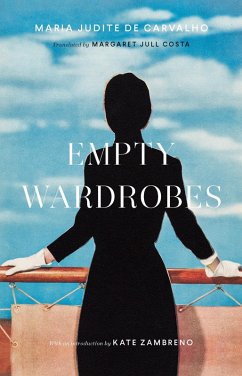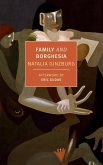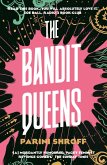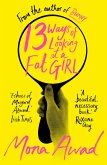"A compact, merciless tragedy... I read this novel with something resembling a rapturous grief." -Kate Zambreno
For ten years Dora has ritualistically mourned her husband's death, a pointless ritual that forced her to rely on support from old friends and acquaintances. Her beloved husband, a "Christ" so principled he rejected any ambition whatsoever as a construct of a corrupt society, succeeded only in leaving Dora and their daughter with nothing. When her mother-in-law reveals a shattering secret about their marriage one night, Dora's narrative of her own life is destroyed. Three generations of women-Dora, her daughter, and mother-in-law-must navigate a world that has been shaped by the blundering men off in the distance, figures barely present who nonetheless define the lives of the women they would call mother, wife, or lover.
Narrated through the gritted teeth of an acquaintance, Empty Wardrobes-Maria Judite de Carvalho's cutting 1966 novel, translated from Portuguese for the first time by Margaret Jull Costa and introduced by Kate Zambreno-is a tale of women who are trapped within the quiet devastation of a patriarchal society and preyed upon by the ambient savageries that perch in its every crevice.
For ten years Dora has ritualistically mourned her husband's death, a pointless ritual that forced her to rely on support from old friends and acquaintances. Her beloved husband, a "Christ" so principled he rejected any ambition whatsoever as a construct of a corrupt society, succeeded only in leaving Dora and their daughter with nothing. When her mother-in-law reveals a shattering secret about their marriage one night, Dora's narrative of her own life is destroyed. Three generations of women-Dora, her daughter, and mother-in-law-must navigate a world that has been shaped by the blundering men off in the distance, figures barely present who nonetheless define the lives of the women they would call mother, wife, or lover.
Narrated through the gritted teeth of an acquaintance, Empty Wardrobes-Maria Judite de Carvalho's cutting 1966 novel, translated from Portuguese for the first time by Margaret Jull Costa and introduced by Kate Zambreno-is a tale of women who are trapped within the quiet devastation of a patriarchal society and preyed upon by the ambient savageries that perch in its every crevice.
Dieser Download kann aus rechtlichen Gründen nur mit Rechnungsadresse in A, D ausgeliefert werden.









